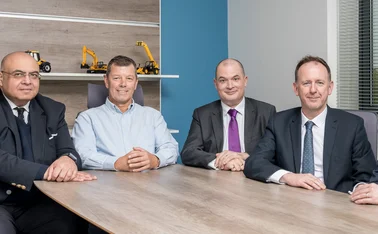
Adjudication pilot for professional negligence claims relaunched

Need to know
- Adjudication was originally introduced into construction claims in 1996
- New pilot scheme is voluntary
- Once an adjudicator is appointed, they have 56 days to produce a reasoned written decision
An adjudication pilot for professional negligence claims has recently been relaunched. It replaces a more limited and rarely used pilot scheme of adjudication in lower-value claims against solicitors.
Adjudication was originally introduced into construction claims in 1996 to prevent parties using drawn-out litigation as a way to avoid their payment obligations. It is a quick dispute resolution mechanism, often described as 'pay first, argue later'. The parties must comply with the decision and, if they disagree, pursue the dispute through litigation or arbitration. In practice, parties often accept the adjudicator's decision.
The new pilot scheme draws on the construction scheme but with key changes, one being that the pilot scheme is voluntary. Under the pilot rules, the parties must agree in writing to be bound by the scheme before a dispute can be referred to adjudication.
There is scope for the parties to adapt the rules by agreement, for example to allow for a multi-party adjudication. They can also decide whether the adjudicator's decision should be confidential, which might be attractive to professional firms for whom lengthy public litigation could be very damaging.
Time and cost
The pilot envisages that the parties will have complied with the relevant pre-action protocol. However, once an adjudicator is appointed, they have 56 days to produce a reasoned written decision. The adjudication scheme is not litigation compressed into two months. It is anticipated that the adjudicator will only want to see key documents and short written submissions. Hearings are likely to be the exception rather than the norm.
Prior to commencing the adjudication, the parties have flexibility to agree whether the adjudicator should have power to award costs and, if so, to what extent. For example, the adjudicator may be able to direct who pays their fees. The parties may also agree that the adjudicator can direct one party to pay the other's costs of the adjudication, or the dispute as a whole, either generally or up to a specified cap. Alternatively, the parties may agree that the adjudicator can make no order as to costs and the parties will each bear their own costs, similar to mediation.
While adjudication could save considerable time and costs when compared to litigation or even mediation, it remains to be seen whether defendant professionals will be content to submit to a less detailed process. In construction adjudication, where fees remain unpaid and the project is being delayed, there is often a sense of urgency to resolving the dispute. This is less likely to occur in professional negligence claims.
Decison will be temporarily binding
Usually the adjudication decision will be temporarily binding, unless and until determined by a court or arbitral tribunal. This leaves either party free to issue proceedings, although the challenging party faces costs risks if it loses. However, the parties can also agree in advance that the decision will be binding. This flexibility may make adjudication a more appealing option to professionals and their insurers.
Adjudication will not be appropriate for all professional negligence claims, particularly those involving substantial expert evidence or requiring cross-examination of witnesses. It may, however, be helpful in lower-value cases where the cost of going to trial would be disproportionate, or those where the only barrier to resolution is a point of law on which the parties cannot agree.
The cost and time saving elements of the scheme and the potential for finality in the adjudicator's decision make it a useful addition to the options for alternative dispute resolution for those who deal with professional indemnity insurance claims.
Malcolm Rogers and Abigail Taylor
Senior solicitor and senior claims handler, Triton Legal
Only users who have a paid subscription or are part of a corporate subscription are able to print or copy content.
To access these options, along with all other subscription benefits, please contact info@postonline.co.uk or view our subscription options here: http://subscriptions.postonline.co.uk/subscribe
You are currently unable to print this content. Please contact info@postonline.co.uk to find out more.
You are currently unable to copy this content. Please contact info@postonline.co.uk to find out more.
Copyright Infopro Digital Limited. All rights reserved.
You may share this content using our article tools. Printing this content is for the sole use of the Authorised User (named subscriber), as outlined in our terms and conditions - https://www.infopro-insight.com/terms-conditions/insight-subscriptions/
If you would like to purchase additional rights please email info@postonline.co.uk
Copyright Infopro Digital Limited. All rights reserved.
You may share this content using our article tools. Copying this content is for the sole use of the Authorised User (named subscriber), as outlined in our terms and conditions - https://www.infopro-insight.com/terms-conditions/insight-subscriptions/
If you would like to purchase additional rights please email info@postonline.co.uk
Most read
- Integration and restructuring costs push RSA to 2023 loss
- Which urges FCA to take action on premium finance following investigation
- Could Jaguar Land Rover issues derail OEM insurance ambitions?








